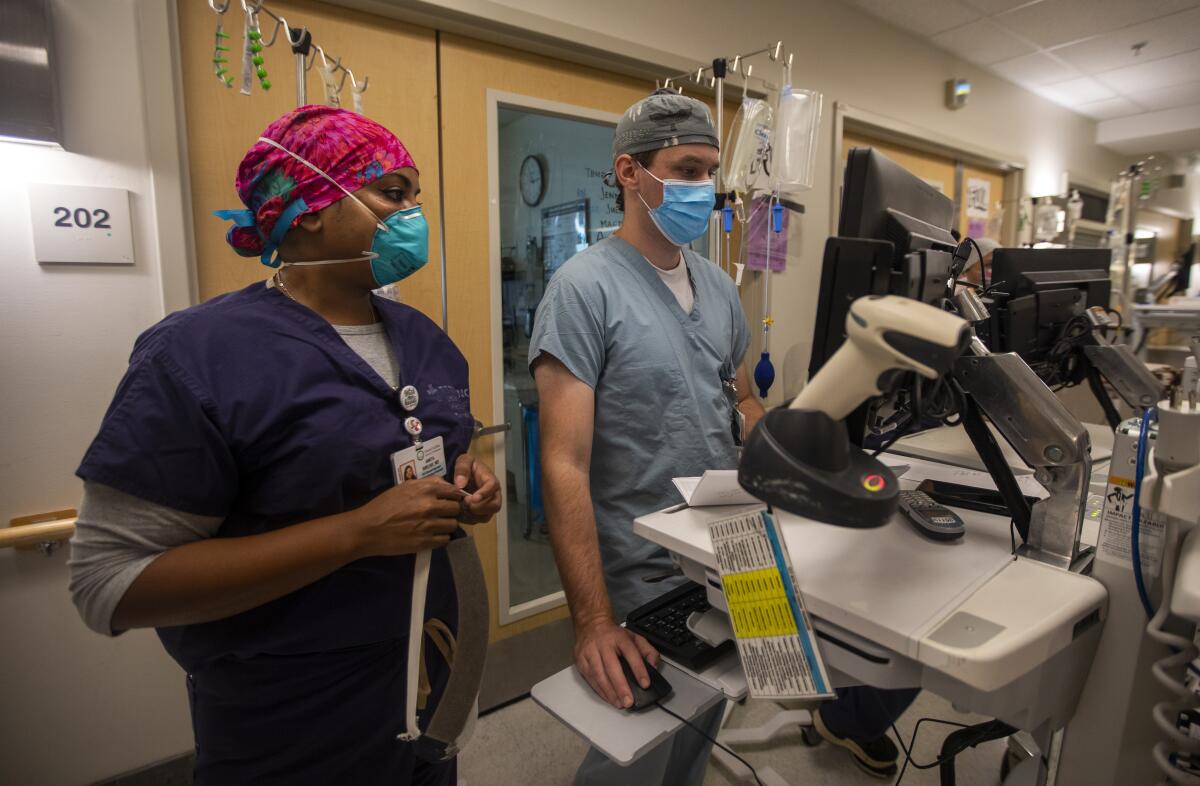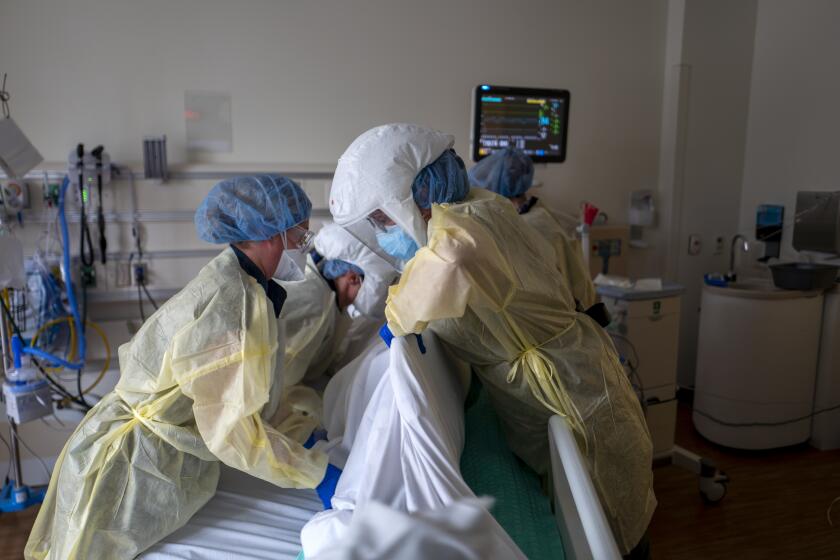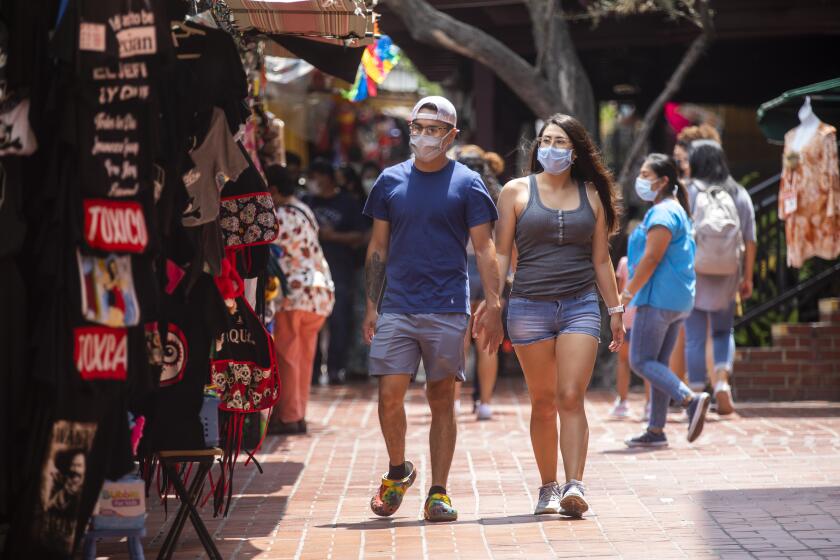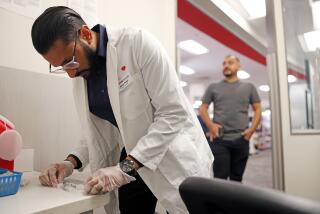How worried should you be about the R.1 coronavirus variant? ‘It died out already’

- Share via
The worst of California’s months-old coronavirus surge now appears to be in the rearview mirror, but worrisome headlines are cropping up about the presence of a potentially dangerous new strain.
Still, officials and experts say the latest variant to enter the public consciousness, dubbed R.1, likely doesn’t present nearly the same threat as previous strains — in part because, despite all the recent attention, it appears to have already petered out.
“This is a variant that, because of its properties, people are worried about it. But it died out already,” Los Angeles County Public Health Director Barbara Ferrer said Tuesday.
“This variant no longer appears to be in circulation in the United States,” she added.
So far, 70 cases of the R.1 variant have been identified throughout California, according to the state Department of Public Health.
Florida was hailed as a model for battling the coronavirus, with many favorably comparing it with California. Then the Delta variant hit and Florida fell behind California in many key metrics, especially deaths.
“Based on the low counts of the R.1 variant in the available California data, it likely has had low-level circulation statewide,” officials wrote in response to an inquiry from The Times. “The R.1 variant was first identified in California in December 2020 and has not been reported since May.”
R.1 has raised some concerns because it exhibits characteristics that officials say could allow it to more easily spread or potentially reduce the efficacy of vaccines now in use.
However, neither the World Health Organization nor the U.S. Centers for Disease Control and Prevention have classified the strain as a variant of concern or interest — designations that would indicate a level of concern about potentially widespread health impacts.
R.1 gained significant attention in April, when it was the subject of a study published by the CDC.
It was involved in an outbreak in a nursing home in Kentucky where, even though 90% of the residents had been vaccinated against COVID-19, only 53% of healthcare staff had been inoculated. Authorities traced the outbreak to an unvaccinated healthcare worker who had become visibly ill.
Vaccination was still associated with a decreased chance of infection and visible illness in the nursing home outbreak. While 25% of vaccinated residents tested positive for the coronavirus, 75% of the unvaccinated residents became infected.
And while only 9% of vaccinated residents developed symptomatic illnesses, 63% of the unvaccinated residents did.
But it was still notable that 25% of vaccinated residents were infected, as were 7% of vaccinated healthcare providers, “supporting concerns about potential reduced protective immunity to R.1,” the CDC noted.
R.1 wasn’t able to grab much of a foothold in California or nationwide before being elbowed out by the Delta variant, which remains the most easily spread version of the coronavirus.
The coronavirus’ Delta variant has upended the calculations of economic forecasters at UCLA, who have dampened their expectations for economic growth in California and across the country.
Since it stormed onto the scene in April, Delta has accounted for the overwhelming majority of California’s new infections. For the last three months, at least 92.5% of all coronavirus cases analyzed have been the Delta variant, state data show.
“One virus strain can dominate, and that’s what we’re seeing with Delta, and it crowds out everything else,” Ferrer told the L.A. County Board of Supervisors.
Two other variants — Lambda and Mu — have seemingly shared the same fate as R.1. Both sparked concerns because they had mutated in ways that could make vaccines and treatments less effective, but they’ve faded into the background as Delta continued to rage.
More to Read
Sign up for Essential California
The most important California stories and recommendations in your inbox every morning.
You may occasionally receive promotional content from the Los Angeles Times.

















